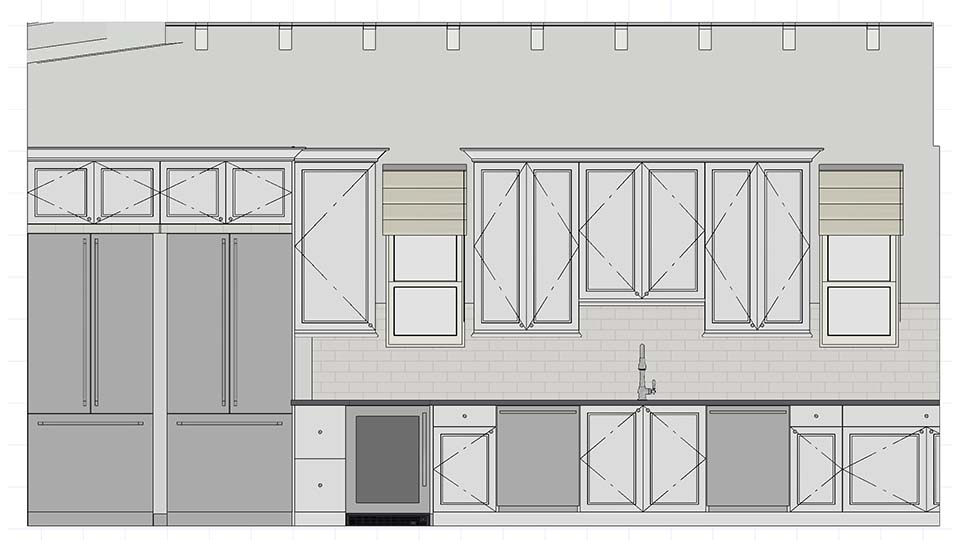Remodeling your kitchen can be a dream; however, the process can quickly become overwhelming without taking a few simple steps to ensure your family is as comfortable as possible during a long-term renovation. Staying in your home is completely possible, but taking time to prepare for several weeks or months of disruption in your home will keep you comfortable and sane! Kitchen remodeling can last anywhere from one to six months, depending on how much work is going into the renovation.
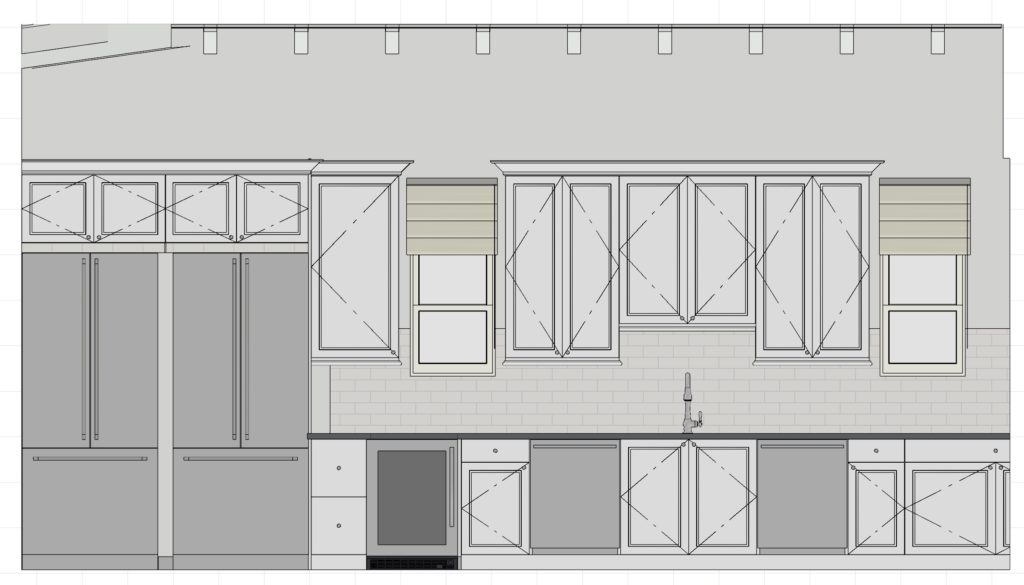
1. Plan What You Can
A kitchen renovation is loud, messy, and disruptive to family life in many ways. Starting with a prepared and positive attitude is one way to hold on to your sanity.
At Lagnappe, we are always discussing the value of proper planning, and a kitchen remodel is the perfect example. Some delays and design changes may be unavoidable, but planning all the details and choosing your materials upfront before the first hammer swings can help you stay on budget. It’s still essential to have a small contingency budget for the unexpected.
Having all the necessary items outlined in advance in a design plan will give your contractor a specific look at just how you expect the finished project to look. That will help them to provide you with more accurate pricing. Once you have all the needed items chosen, you can start buying them in advance. With this year’s supply chain delays, some contractors won’t remove your old kitchen until they have all the new items onsite.
The best way to streamline your renovation process is to buy everything on your design plan early. Changes and back-ordered items will create delays and confusion, not to mention increased costs! You’ll be making many decisions for your kitchen, and it’s easy to become overwhelmed. Ordering in advance can also help your contractor stay on budget and on time.
Something else to keep in mind is that there will be days when you won’t see progress, and that’s okay! Try to remember that things are happening in the background.
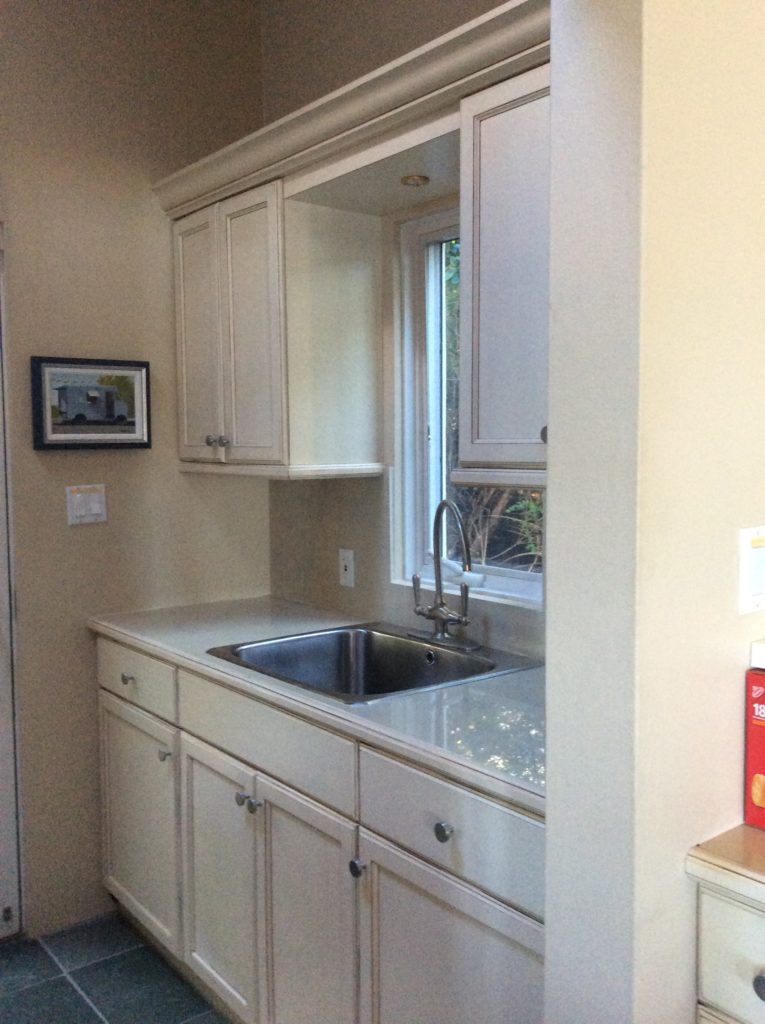
2. Keep Your Cool
Give yourself time to breathe and remember that at the end, you’ll not only have your house back but your dream kitchen! Escaping the noise is important. Taking walks, going to a yoga class, and hitting the gym are all healthy ways to give yourself a break from the construction activity and stress.
Choosing to do your renovation during a warmer season allows you to spend time outdoors and can even help with the cooking situation!
Try not to second-guess yourself, and put your trust in your contractors and designer. They want you to be happy with the end result too! Taking pictures and keeping track of the progress will also help you stay motivated during this time.
An important note: Kitchen renovations do not come with childproofing services, and creating clear boundaries for your family will help everyone stay safe during construction. Implementing “shoes only” areas or keeping certain spaces off-limits for kids will ease the worries of someone stepping on a stray nail or tripping over tools. Outlining these boundaries early in the process cuts down stress for the whole family!
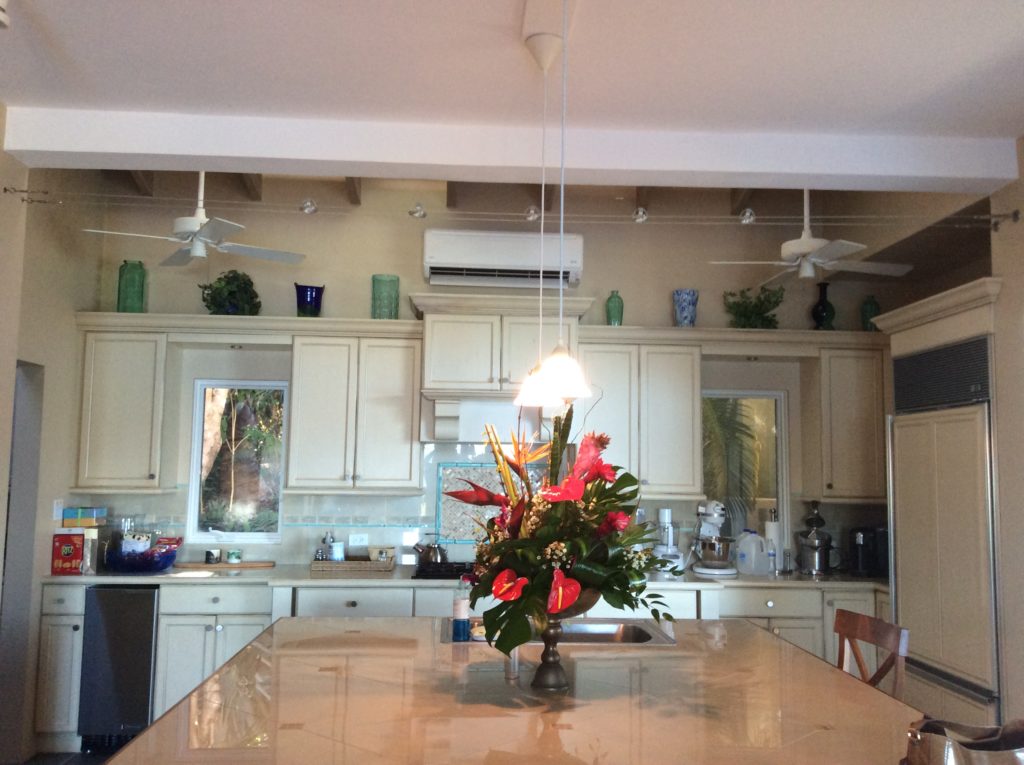
3. Meal Planning
Renovating your kitchen doesn’t mean you have to survive on TV dinners, but ready-made meals are one of the easiest ways to ensure that you’ll have some sort of food on-hand. We recommend setting aside time before your renovation to cook and freeze your own meals.
Cereal, soup, prepackaged snacks, and sandwiches are the most accessible foods to have on hand, so be sure to stock up in advance. If you have access to an outdoor grill, shop for items that can be cooked outdoors. Grilling meat and vegetables is a healthy way to have a home-cooked meal, minus your kitchen!
Eating out is impossible to avoid at times, and we suggest that you incorporate the cost of carry-out and restaurant meals into your renovation budget. While considerably more convenient, the added cost of eating out plus the craving for a home-cooked meal can drive you crazy. Luckily, we have some options.
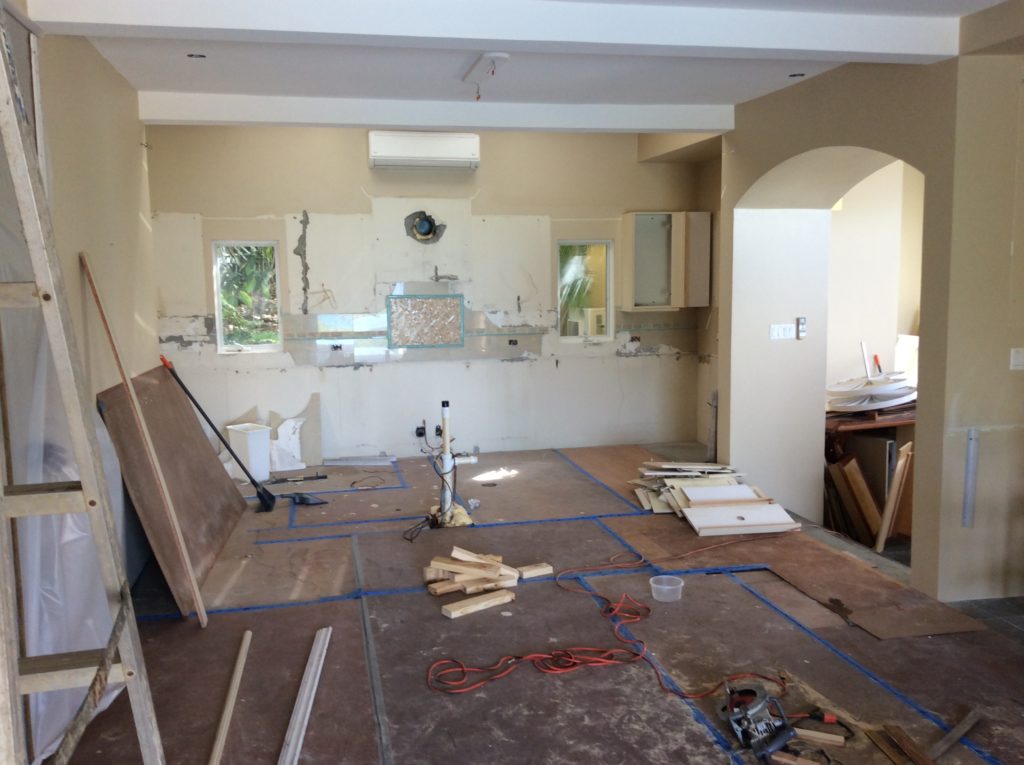
4. Temporary Kitchen Space
The easiest way to avoid living off carry-out meals is to designate another space in your home as a temporary kitchen. A noisy renovation is a lot to deal with, and if you’re like us, not having caffeine will only add to the stress. Creating a space for essentials like a coffee maker or electric tea kettle, toaster, minifridge, and electric skillet is key to staying calm and comfortable in your home. You can even ask your contractor to help you use your old counters or even plywood to create some counter space! Placing a fridge or cooler by a water source in your temporary kitchen is critical for perishable items as well.
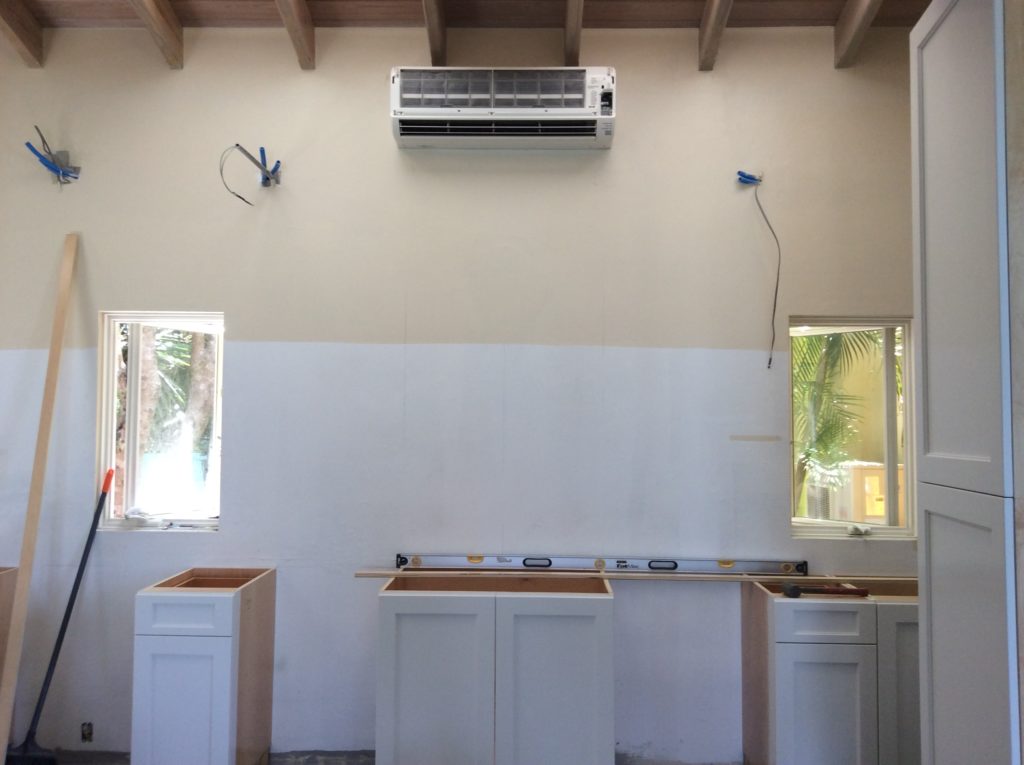
Plastic or paper cutlery and dishes are often a go-to for families during a renovation, but they aren’t the most environmentally friendly option. One solution is to provide each family member with a dining set to use during construction; one plate, one bowl, one cup, one fork, etc. Keep in mind that you will likely be using a washroom sink or outdoor hose/bucket situation to wash up, so try to limit your dishes. We recommend stocking up on a few disposables, including an area for trash and food waste to be stored that won’t attract pests. The last thing you want in your temporary kitchen is an ant infestation!
Under the kitchen sink is where many families keep their cleaning supplies, so consider moving your dish soap and sponges into this designated area as well. Keep a scrub brush, detergent, and drying cloth on hand for dirty dishes. New messes invading your space can be overwhelming, and having a cleaning area will help you be healthy and comfortable.
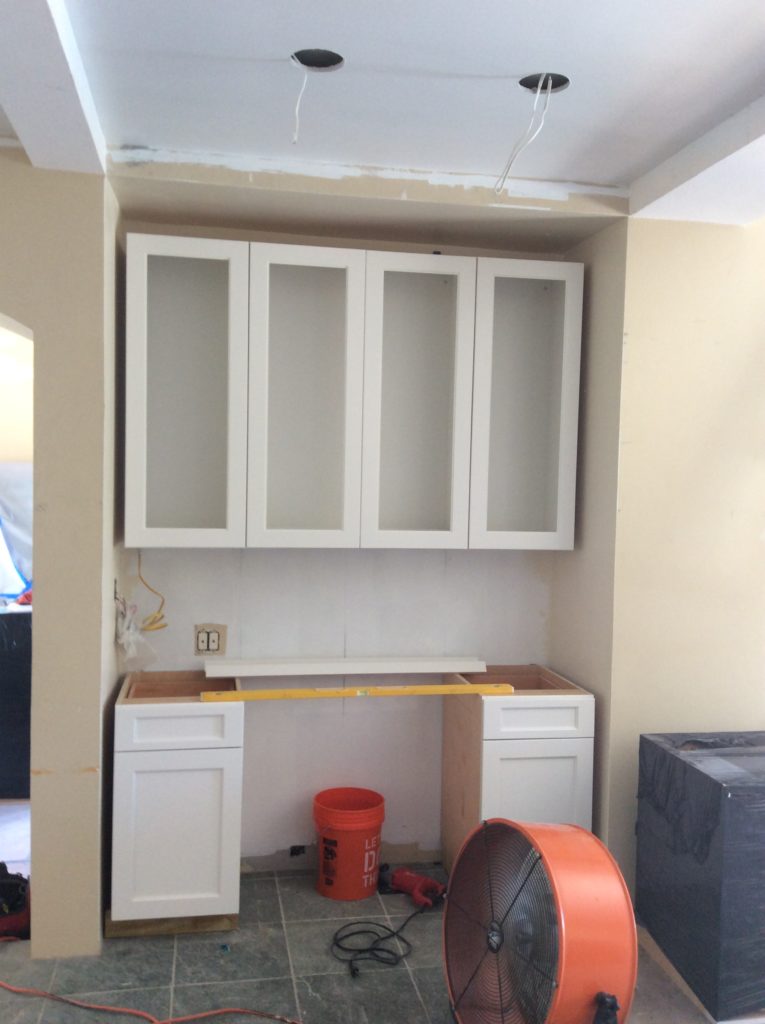
5. Plan What You Pack
Packing up your kitchen can seem daunting at first, but with a plan in place and a few helping hands, it can be done with minimal headaches. The most important step in this packing plan is determining what essentials to keep out of your temporary kitchen station versus which items you will be putting in storage to bring back later. Remember that the fewer items cluttering your space, the cleaner and more organized your temporary cooking space will be.
Here are a few suggestions for what to leave out during your renovation:
– Coffee, tea, sweeteners, and mugs
– Salt, pepper, and your favorite seasonings
– A silverware and dining set for each family member
– Food storage containers with lids, sandwich bags, and freezer bags
– A mixing bowl or two
– Plastic wrap and foil
– Paper towels and napkins
– Dish towels and cloths
– Scrub brush, sponge, dish detergent, and disinfectant wipes or spray
– Can opener and potato peeler
– Wine or bottle opener (you may need it!)
– Trash bags and at least one trash can for food
– Grilling materials
– Cutting board, bread knife, and one or two steak knives
– Scissors, tongs, and spatulas
– A few serving spoons
– Oven mitts and cooking spray
– Crockpot, air fryer, toaster oven, electric skillet, and rice cookers are all lifesavers!
– Placemats and tablecloth
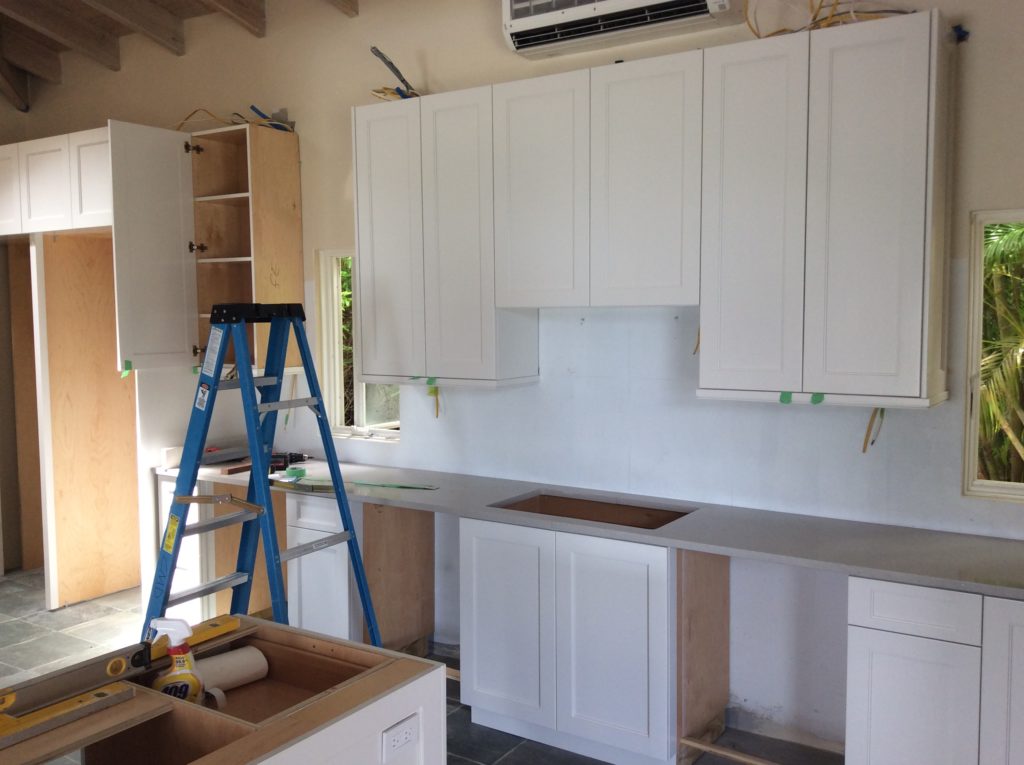
When packing up your kitchen, try to keep like items together. It’ll save you time and stress when you move everything back! Use newspaper and extra padding when packing fragile items; even if for a short time, glass and dinnerware can easily be broken during the moving process. You should also pack away curtains and curtain rods, blinds, and wall decorations.
If you have access to a second fridge or freezer, store your frozen or cold foods there. You can often have your existing fridge moved to another room of the house and plugged in there to avoid living out of a cooler.
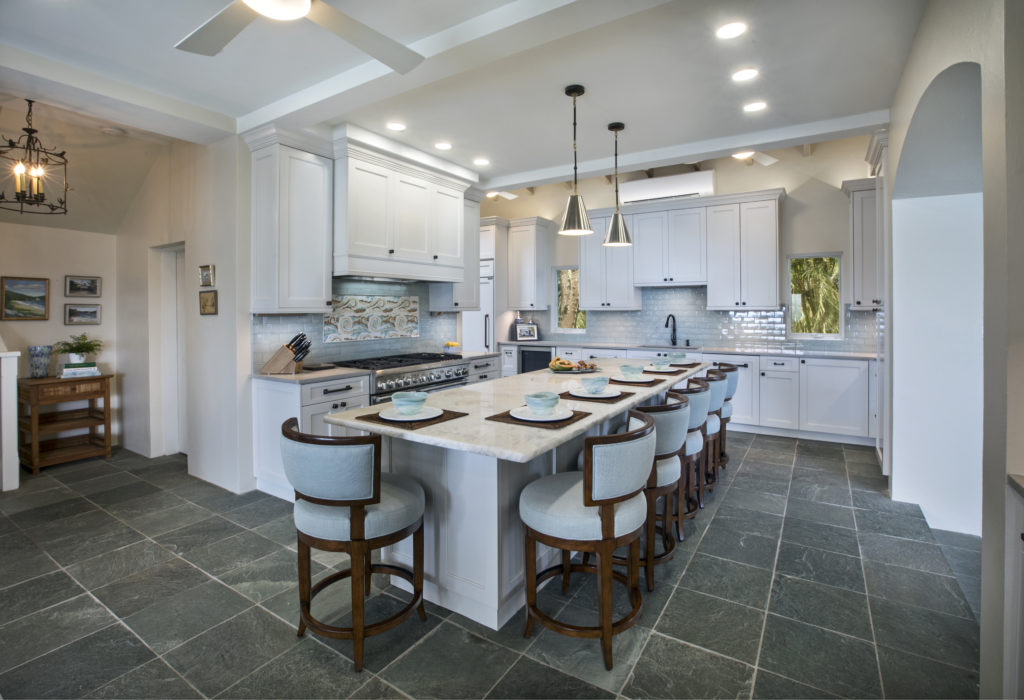
6. Take Advantage of this Opportunity to Organize
Categorize your dry goods and canned food items, divide your cutler into separate plastic bags, and place your kitchen gadgets in their own box. Items you don’t use frequently like holiday dishes can be packed away for storage in a garage or attic. As you pack, set aside a box for donations and a box for old and unusable items. There’s no better time to de-clutter! Be sure to label all of your packed items before storing them to make life easier after the renovation.
Packing is just one part of preparing your kitchen to become a work zone. We have a few more tips to protect your home during construction:
– Determine the path contractors will take from your door to the kitchen, and use drop cloths or old rugs to protect these areas
– Remove any decorative rugs or loose wall hangings in these areas
– Protect adjacent rooms; cover computers and other electronics to protect them from dust, as well as furniture. Remove breakable items from walls and shelves in these areas.
– Choose a spot out of the way to store breakable items and kitchenware.
– Find a secure place to store mail and other important documents to avoid losing them.

7. Protect Your Pets
Your furry friends are probably used to having free reign of the house, and it’s important to keep them out from underfoot during a renovation for the safety of everyone involved. If you have pets that are sensitive to noise or dust, it might make the most sense to ask a friend or family member to house them or make use of an extended pet hotel service.
If your pet is staying in the home, be sure to leave out their food and dishes in your temporary kitchen area as well!
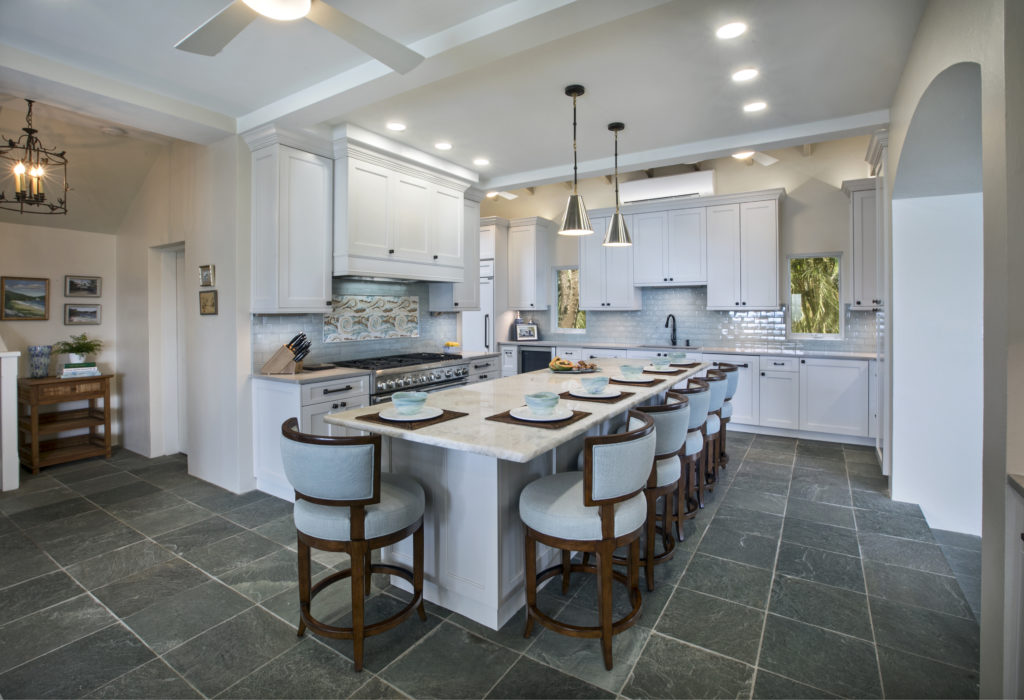
Redesigning your kitchen is an exciting opportunity and one that can be fairly low-stress with the proper preparation. We hope we’ve helped you get started on your plan and are excited to see where renovation takes you!









